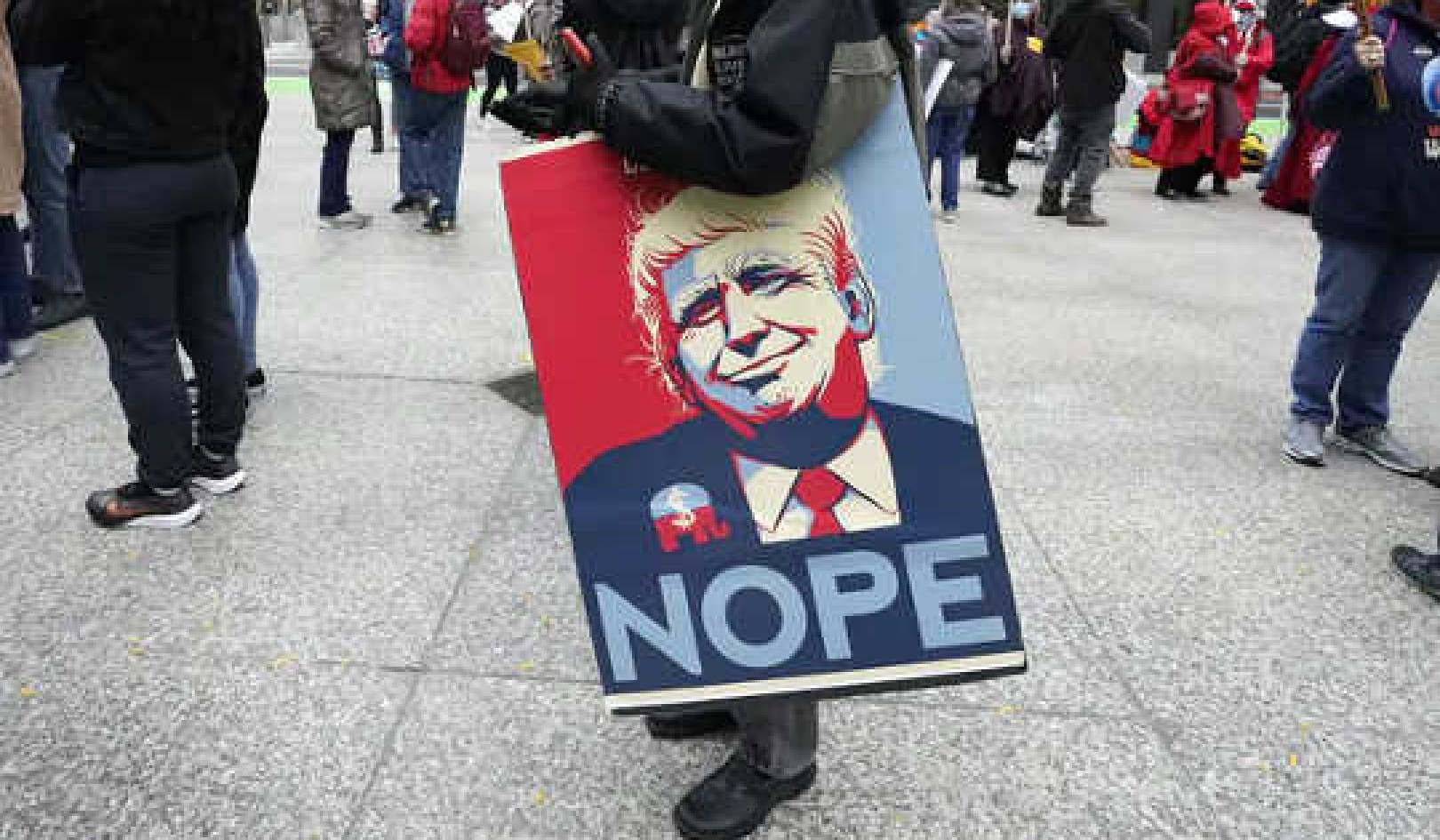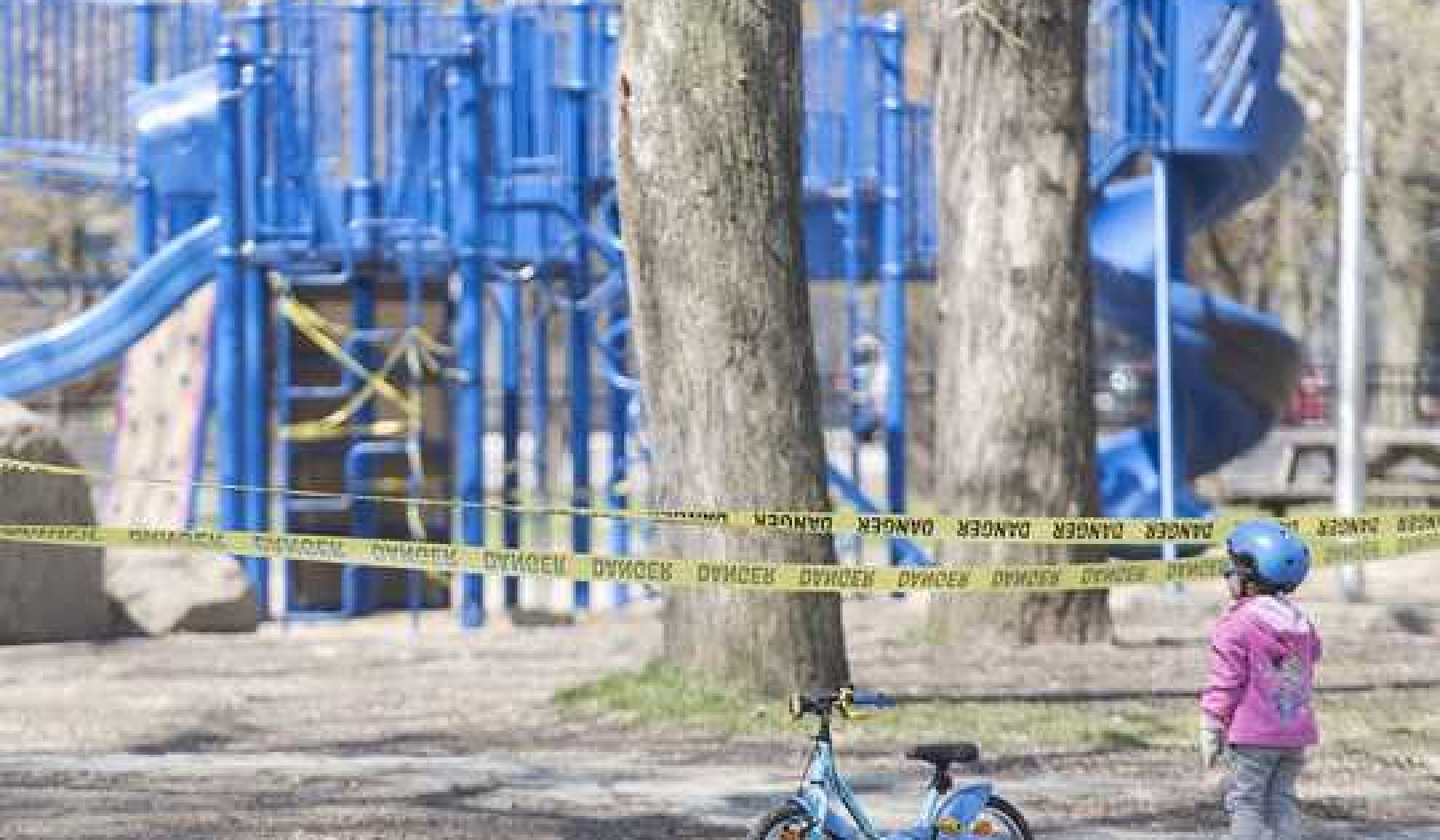 We really screwed this one up didn’t we. Mazhar Zandsalimi/Unsplash, CC BY-SA
We really screwed this one up didn’t we. Mazhar Zandsalimi/Unsplash, CC BY-SA
Society’s defining issues are rarely presented as raw facts and stats, and climate change is no exception. From the performance of funerals for lost species and glaciers to the claim that the best we can do is adapt to impending catastrophe, climate change is often narrated like a classic Greek tragedy. Errors in human judgement set off a chain of events that once in motion inevitably bring extreme suffering, and a powerful sense of helplessness to change what we know is coming.
In many ways, such gloomy perspectives are appropriate. Millions of people are already being displaced or killed by the human-caused destabilisation of our climate. And yet, as environmental scientists and communication specialists point out, such narratives are problematic because they tend to inspire inertia and anxiety rather than action.
Narratives of hope might go some way to changing the script and galvanising a response. But there’s an even more suitable story we can supplement our tragic narratives with: comedy.
{vembed Y=dSr6mP-zxUc}
This proposal might seem bizarre. There is nothing funny about the prospect of environmental collapse. But while comedies are meant to be funny, they don’t have to be lighthearted or trivial.
Many philosophical approaches to comedy hold that comic effects arise from incongruities: mismatches between what we expect and what we perceive. For French philosopher Henri Bergson, one of the central incongruities used in comedy is when organic life – normally chaotic, changeable, and adaptable – instead acts in a machine-like way. Bergson argues that laughing at this incongruity is a social tool by which we mildly scold each other for not being adaptive and flexible enough.
Bergson extends this idea explicitly to the way humans relate to nature. He gives the anecdotal example of a lady who had been invited by the astronomer Cassini to observe an eclipse of the moon. Arriving late, she asks the astronomer to please begin the viewing anew.
Bergson also describes a character who arrives in town and, learning that there is an extinct volcano in the neighbourhood, exclaims: “They had a volcano and they let it go out!”. Here, comedy arises from the common treatment of the complicated and evolving network of life as mechanical and controllable.
This sort of attitude may seem ridiculous, but it encapsulates a dominant approach to tackling the climate crisis. Rather than trying to infringe less on our environment and allowing it to recover, many are doubling down on the technological harnessing of the natural world that got us into this mess in the first place – and will likely keep making things worse.
Bergson’s comic protagonists behave mechanically in relation to nature, and we laugh about them. But in laughing about them, we laugh about ourselves, too. They can help us reflect on our actions and highlight the absurdity and inefficiency of many human responses to the climate crisis.
Comic heroes
But comedies offer more than just a mode of critique. In addition to the protagonists we laugh at, comedies also provide heroes we laugh with. Rather than having a mechanical grip on their environment, they are receptive to the challenges of a living and changing environment and adapt their actions and goals accordingly.
The ancient philosopher Aristotle highlighted that comic characters are flawed but never wholly bad or evil. Likewise, their actions are often pathetic, but not vicious, and comedies overall are driven by errors and clumsiness. German philosopher Georg Wilhelm Friedrich Hegel held that it is a peculiar strength of comic protagonists to be able to withstand failure and disaster. Their flawed characters, their struggles with what life throws at them, and their perseverance against the odds make them a good mirror of the human condition.
{vembed Y=mgsErxFEPSE}
Comic figures often have a keen ability to see dire situations for what they are, and themselves for what they are – in a position of weakness and vulnerability. With this in mind, they nonetheless set out to achieve seemingly impossible tasks. Think of Aristophanes‘ classic comedy, Peace: Trugaios, the main character, is a simple villager with no economic or political power. He is well aware that restoring peace in Greece is well beyond his powers. Yet he insists on trying.
There are two main reasons why he succeeds. First, the restoration of peace is a collective effort. Trugaios acts in concert with others – peasants, foreigners, workers. Comic heroes thus avoid the problematic representation of “proper” heroes as exceptional individuals who are uniquely able to deal with crisis.
Second, Trugaios is willing to consider even the unlikeliest means to achieve his goals, such as a dung beetle who will fly him up to heaven, and he constantly adapts his approach in response to the challenges he encounters on the way. Rather than mechanically following a plan, his actions show precisely the elasticity Bergson thought was so essential to what it means to be alive.
I do not recommend that we turn away from tragic and apocalyptic narratives entirely – there is much truth and value to them. But we would do well to supplement them with comic reflections on our relationship with nature and our ability to act in the face of hopelessness. Comedy is not merely a way to allow us to process news about climate change in a less anxiety-inducing way. It allows us to reflect on who we are and how we do things in the world.
More specifically, comedy can point out where there are fundamental problems in our mechanical and technocratic behaviour toward the environment. And, finally, if we begin to think of our own agency more like that of comic heroes — not in control of their environment, yet often able to muddle through despite their own ineptitudes and repeated failures — this might help us persevere in view of the seemingly impossible tasks ahead of us.
Tragedy highlights the vulnerability of those who think themselves in control. Comedy shows the strength of those who recognise their own vulnerability. We need both stories to confront the climate crisis.
About the Author
Birte Loschenkohl, Marie Sklodowska Curie Fellow, Department of Philosophy, University of Essex
This article is republished from The Conversation under a Creative Commons license. Read the original article.
Related Books
Climate Adaptation Finance and Investment in California
by Jesse M. Keenan This book serves as a guide for local governments and private enterprises as they navigate the unchartered waters of investing in climate change adaptation and resilience. This book serves not only as a resource guide for identifying potential funding sources but also as a roadmap for asset management and public finance processes. It highlights practical synergies between funding mechanisms, as well as the conflicts that may arise between varying interests and strategies. While the main focus of this work is on the State of California, this book offers broader insights for how states, local governments and private enterprises can take those critical first steps in investing in society’s collective adaptation to climate change. Available On Amazon
This book serves as a guide for local governments and private enterprises as they navigate the unchartered waters of investing in climate change adaptation and resilience. This book serves not only as a resource guide for identifying potential funding sources but also as a roadmap for asset management and public finance processes. It highlights practical synergies between funding mechanisms, as well as the conflicts that may arise between varying interests and strategies. While the main focus of this work is on the State of California, this book offers broader insights for how states, local governments and private enterprises can take those critical first steps in investing in society’s collective adaptation to climate change. Available On Amazon
Nature-Based Solutions to Climate Change Adaptation in Urban Areas: Linkages between Science, Policy and Practice
by Nadja Kabisch, Horst Korn, Jutta Stadler, Aletta Bonn This open access book brings together research findings and experiences from science, policy and practice to highlight and debate the importance of nature-based solutions to climate change adaptation in urban areas. Emphasis is given to the potential of nature-based approaches to create multiple-benefits for society.
This open access book brings together research findings and experiences from science, policy and practice to highlight and debate the importance of nature-based solutions to climate change adaptation in urban areas. Emphasis is given to the potential of nature-based approaches to create multiple-benefits for society.
The expert contributions present recommendations for creating synergies between ongoing policy processes, scientific programmes and practical implementation of climate change and nature conservation measures in global urban areas. Available On Amazon
A Critical Approach to Climate Change Adaptation: Discourses, Policies and Practices
by Silja Klepp, Libertad Chavez-Rodriguez This edited volume brings together critical research on climate change adaptation discourses, policies, and practices from a multi-disciplinary perspective. Drawing on examples from countries including Colombia, Mexico, Canada, Germany, Russia, Tanzania, Indonesia, and the Pacific Islands, the chapters describe how adaptation measures are interpreted, transformed, and implemented at grassroots level and how these measures are changing or interfering with power relations, legal pluralismm and local (ecological) knowledge. As a whole, the book challenges established perspectives of climate change adaptation by taking into account issues of cultural diversity, environmental justicem and human rights, as well as feminist or intersectional approaches. This innovative approach allows for analyses of the new configurations of knowledge and power that are evolving in the name of climate change adaptation. Available On Amazon
This edited volume brings together critical research on climate change adaptation discourses, policies, and practices from a multi-disciplinary perspective. Drawing on examples from countries including Colombia, Mexico, Canada, Germany, Russia, Tanzania, Indonesia, and the Pacific Islands, the chapters describe how adaptation measures are interpreted, transformed, and implemented at grassroots level and how these measures are changing or interfering with power relations, legal pluralismm and local (ecological) knowledge. As a whole, the book challenges established perspectives of climate change adaptation by taking into account issues of cultural diversity, environmental justicem and human rights, as well as feminist or intersectional approaches. This innovative approach allows for analyses of the new configurations of knowledge and power that are evolving in the name of climate change adaptation. Available On Amazon
From The Publisher:
Purchases on Amazon go to defray the cost of bringing you InnerSelf.comelf.com, MightyNatural.com, and ClimateImpactNews.com at no cost and without advertisers that track your browsing habits. Even if you click on a link but don't buy these selected products, anything else you buy in that same visit on Amazon pays us a small commission. There is no additional cost to you, so please contribute to the effort. You can also use this link to use to Amazon at any time so you can help support our efforts.























